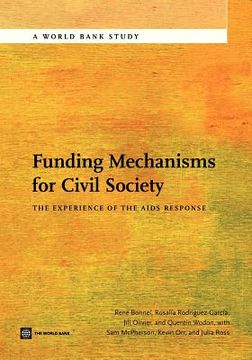Synopsis "funding mechanisms for civil society (in English)"
In the past decade the global financial assistance for AIDS responses increased tremendously and the donor community provided greater resources to community responses. Yet little is known about the global magnitude of these resources and their allocation among HIV and AIDS activities and services. To address this knowledge gap, this report pulls together evidence from several different sources (donor data bases, surveys of civil society organizations, country funding profiles) to determine, among other things, how funds are reaching civil society and community-based organizations, how these funds are being used, and the degree to which these organizations rely on other sources of funding. The analysis suggests that funding flows have increased dramatically for civil society organizations (CSOs), reaching at least $690 million per year on average during the period 2003-2009. However, much smaller funding is reaching organizations at local level. The report documents the impact achieved by this funding. Traditionally, civil society organizations have been perceived at times to be providers of humanitarian aid, innovators in implementing responses adapted to local needs, or inefficient actors diverting public funds from more effective uses. The report argues that current evidence shows that community responses play a useful complementary role to national AIDS programs that has been achieved with relatively little funding. Contrary to a widespread view, the report highlights that community responses add resources to national programs. In Kenya, Nigeria and Zimbabwe, substantial mobilization of resources in the form of volunteers are mobilized by communities. There is a strong risk that in the current environment of increased resource scarcity, prevention programs implemented by civil society organizations would be cut unless there is strong evidence of value for money being generated. Community-based organizations are ill equipped to answer that question, but there is scope for improving the results that they generate. The report argues that improving coordination with national programs, strengthening consistency between local activities and HIV epidemics, building stronger network of civil society organizations, and mobilizing sustainable funding are the most important ways for community responses to move forward and address the challenges faced by community responses.

